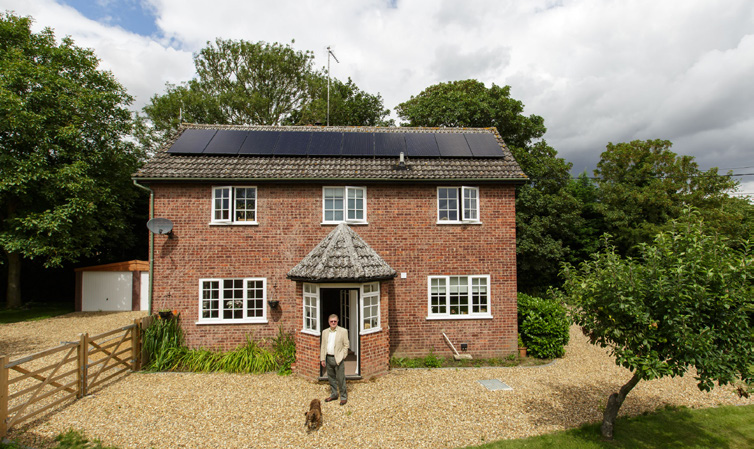Last weekend’s bright and unseasonal British sunshine shed further light on the growing power of the U.K. solar sector, and making it possible for the nation’s combined PV installations to shatter previous generation records and slash demand for electricity from the grid to a new low.
As stated by the National Grid, the company that runs the U.K. transmission network, for the first time ever homes and businesses demanded less electricity during Saturday daytime than they did during the night as production from solar panels replaced power from traditional generation sources.
This meant that the PV capacities produced six times more electricity than the nation’s coal-fired power stations on Saturday, a trend that continued into Sunday and Monday, pushing solar power penetration to 15% of the country’s electricity generation.
“Demand being lower in the afternoon than overnight really is turning the hard and fast rules of the past upside down. It’s another fascinating sign of the huge changes we are seeing in Britain’s energy scene,” said Duncan Burt of National Grid.
The news about solar’s landmark weekend comes amid concerns about the possible tax hike of up to 800% for the U.K.’s rooftop solar segment in the fiscal year beginning in April, which could see additional taxes for 44,000 system owners, including schools in England and Wales that are facing additional an £1.8 million on their tax bills.
With its focus taken up by the ongoing Brexit ordeal, the U.K. government’s attention has drifted away from the renewable energy policy.
In the solar sector, this is well proven by statistics, as 2016 saw a significant decrease in new PV installations, with the 1.94 GW capacity added last year far below the 2015 and 2014 figures of 4.13 GW and 2.55 GW respectively.
Meanwhile, a wake-up call comes from the European Commission, which has pointed out that the U.K. is falling behind with its energy transition process, as it seems increasingly far from reaching the EU Renewable Energy Directive’s target of 30% renewable penetration by 2020.
This content is protected by copyright and may not be reused. If you want to cooperate with us and would like to reuse some of our content, please contact: editors@pv-magazine.com.




By submitting this form you agree to pv magazine using your data for the purposes of publishing your comment.
Your personal data will only be disclosed or otherwise transmitted to third parties for the purposes of spam filtering or if this is necessary for technical maintenance of the website. Any other transfer to third parties will not take place unless this is justified on the basis of applicable data protection regulations or if pv magazine is legally obliged to do so.
You may revoke this consent at any time with effect for the future, in which case your personal data will be deleted immediately. Otherwise, your data will be deleted if pv magazine has processed your request or the purpose of data storage is fulfilled.
Further information on data privacy can be found in our Data Protection Policy.